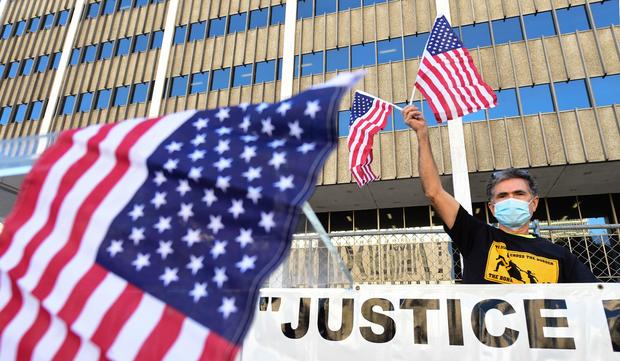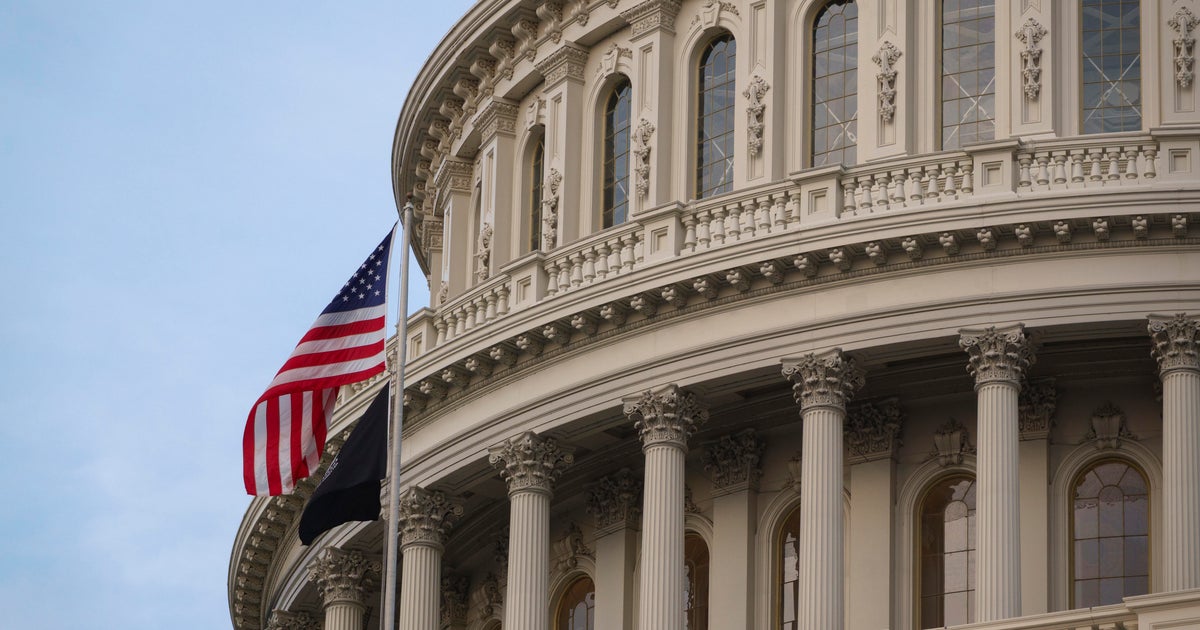Biden plan would offer legal status to farm workers, "Dreamers" and other undocumented immigrants
After taking the oath of office on Wednesday, President-elect Joe Biden will send Congress a proposal that would allow millions of undocumented immigrants in the U.S. to apply for legal status, increase aid to Central America, refocus border control measures and expand legal immigration, according to incoming White House officials.
The centerpiece of the sweeping plan, dubbed the U.S. Citizenship Act of 2021, is a legalization provision with two different pathways. Temporary Protected Status (TPS) holders, farm workers and undocumented immigrants brought to the U.S. as children would be eligible to apply for green cards immediately and for U.S. citizenship after three years.
Other eligible undocumented immigrants, including workers deemed essential during the coronavirus, would be able to apply for work permits and temporary deportation relief. After five years, they could request permanent residence and become naturalized U.S. citizens after another three years.
All applicants would need to pay fees, file taxes, pass background and criminal checks and satisfy certain prerequisites, including living in the U.S. before January 1, 2021. Applicants would lose their place in line if they are convicted of certain crimes.
While it is unclear whether Mr. Biden's proposal will garner enough support in the House and Senate, where Democrats will have slim majorities, its provisions represent a seismic shift from the Trump administration's restrictive immigration agenda. Mr. Biden is also expected to issue a flurry of executive actions during the early days of his presidency to undo many Trump-era immigration changes.
Mr. Biden's proposal would also make several changes to the legal immigration system. According to the incoming White House officials, the plan would increase per-country caps for immigrant visas used by U.S. citizens and green card holders to bring family members to the U.S. It would also repurpose unused visas to help clear the case backlog of people seeking green cards.
According to an outline shared by the incoming administration, the bill would allow immigrants whose family-sponsored applications were approved to come to the U.S. under a temporary status as they wait for green cards to become available.
The per-country caps for immigrant visas filed by prospective employers would be eliminated altogether and wait times would also be shortened, according to the incoming White House officials. Immigrants who earned advanced degrees in STEM fields at U.S. schools would be eligible to stay in the U.S.
Spots in the diversity visa lottery, a program derided by President Trump that was established to foster immigration from underrepresented countries, would increase to 80,000 from the current annual cap of 55,000.
Current sanctions that bar immigrants from re-entering the U.S. for three or 10 years after living in the country without legal permission would be discarded under Mr. Biden's plan.
The proposal would also curtail a broad executive power that allows presidents to limit and outright ban the entry of non-citizens to the U.S. Mr. Trump has invoked that authority several times, including to issue travel and immigration restrictions on 13 countries, most of which are majority Muslim or African.
Mr. Biden's bill would charge the Department of Homeland Security with expanding screening and scanning capabilities along U.S. borders to better interdict illicit drugs. It also allocates infrastructure funding to bolster border agents' capacity to process asylum-seekers and disrupt drug smuggling.
The bill would require more training for border officials "to promote agent and officer safety and professionalism." It would instruct DHS to develop department-wide use-of-force guidance and to hire special agents charged with investigating cases of personnel misconduct.
Another provision would increase prosecution and penalties for those found to have smuggled migrants or drugs.
"Taken together, we think this is a much more comprehensive approach to the border," one incoming White House official said. "The wall is too limited, and we need to address all facets of the system."
Mr. Biden's proposal would also greenlight his pledge to provide $4 billion in aid to Central America over four years to reduce corruption, violence, poverty and other factors that prompt migrants and asylum-seekers to trek north.
The plan would call for the establishment of facilities in Central America where people could apply for legal avenues to immigrate to the U.S., including through resettlement as refugees. It would also reinstate an Obama-era program Mr. Trump terminated in 2017 that allowed at-risk children in Central America to apply for refugee or parole status and reunite with their families in the U.S. if their parents were authorized to be in the country.
Other provisions in the proposal would eliminate the current 1-year deadline migrants have to apply for asylum; increase funding for legal orientation programs for children and other vulnerable individuals in deportation proceedings; and triple the number of visas available for victims of crimes who assist U.S. law enforcement.
In a symbolic move, Mr. Biden's legislative plan would change all references to "alien" in U.S. immigration laws and replace them with "noncitizen."





